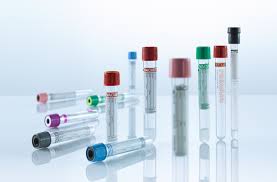Tests can give us useful information about our health, although they aren't always necessary or helpful. They are often just general indicators of our health condition and have to be considered in the context of each individual's condition. Some tests are part of monitoring medication you are taking or an ongoing condition and need to be done at regular intervals. Your doctor works with you to decide what tests are required, arranges the tests and explains or interprets the results for you.
There are three stages in the process: ordering the investigation, taking the tests/samples, and following up the results.
Ordering tests: It is a laboratory requirement that an identified doctor is responsible for ordering tests. This is to ensure that tests are appropriate, and to establish who the results should be sent to when available. In general the doctor who originates the test request will be sent the results for follow-up.
Taking the tests: depending on what is involved, samples for testing may be taken in the surgery, or tests may be done in a hospital or clinic. See the section on blood tests and scans/x-rays for more details.
Follow-up on the results (the most important part): whenever you have tests done you should ask when results will likely be available and agree a plan for follow-up. This may vary according to the circumstances but it is important that you know what the arrangements are. It is not a good idea to assume "no news is good news" so do follow up if you have not heard within the planned timeframe.
